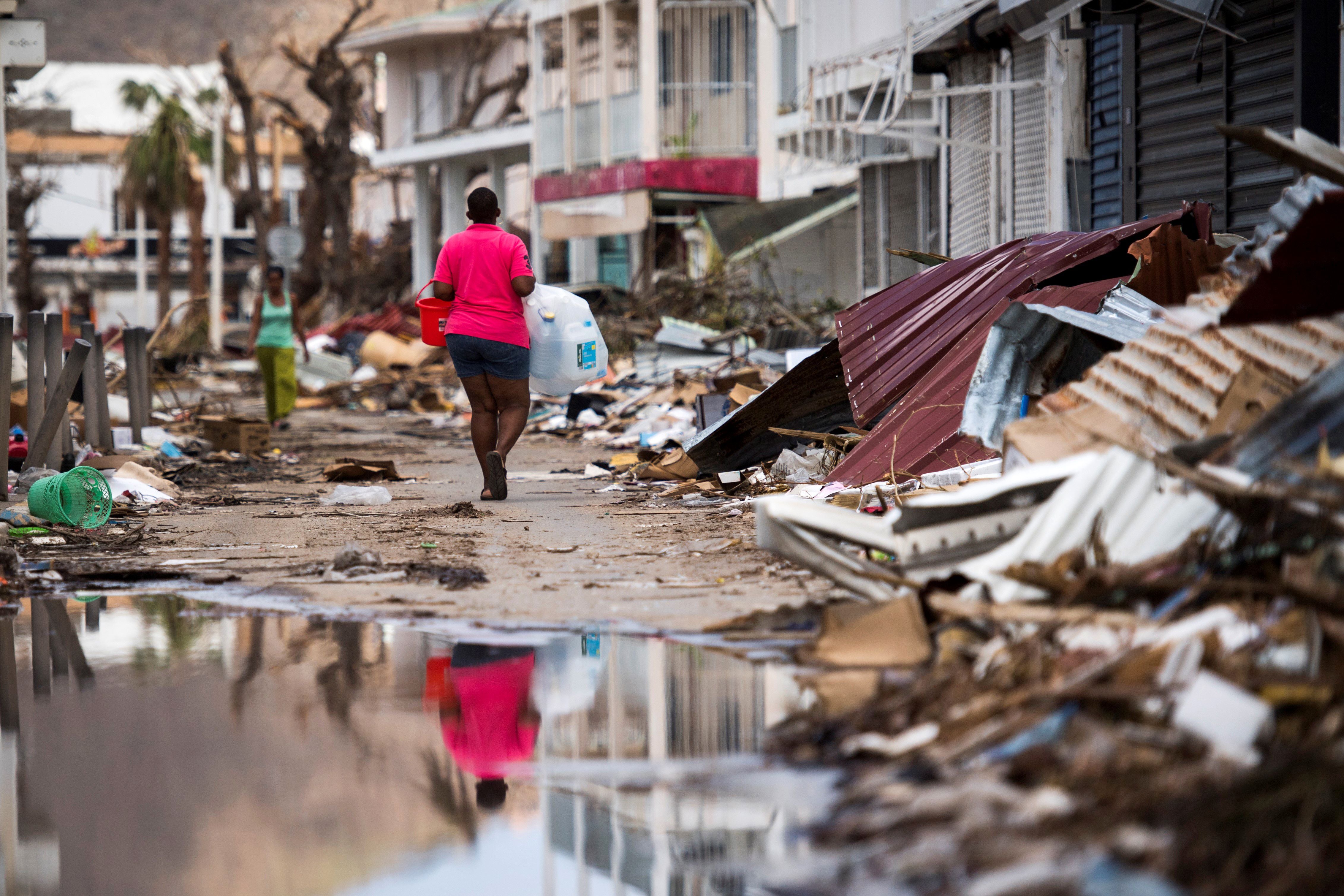
Tears formed as I watched the CNN breaking news alert above my desk two weeks ago.
Irma was barreling towards the Caribbean with a force so strong even the most seasoned meteorologists were visibly nervous. And while they were focused on her eventual landfall in South Florida, my stomach churned in fear for those in her path — a string of islands that for the past 31 years have come to feel like home.
Hiding back any semblance of emotions, I dialed my grandmother in St. Thomas to make sure she was prepared. “Tan Tan, your old grandmother is here. Praise the Lord! I’m ready,” she assured me, adding that a young man had passed by the day before to help her get some things in order. The only thing left to do was take the family photos from the wall unit and place them in the Rubbermaid bins her sister-in-law had brought her back from “the States.”
My grandma wasn’t new to this. She settled in the U.S.V.I. nearly 60 years ago after leaving her birthplace of Antigua. The same Antigua that took in close to 2,000 Irma victims when their sister island of Barbuda was ravaged by the storm.
For my family and many others, the Caribbean is more than just a place we visit on a honeymoon, frequent on family vacations or stop-off at on a week long cruise. These islands are our DNA, our history, and our lifeline. When people see pristine beaches and picturesque palm trees, we see the manifestation of dreams, a rich culture and a land of people who look like us.
So naturally, when I heard a Category 5 storm was headed its way, my apprehensions become increasingly more apparent.
Before wrapping up our conversation we did our typical exchange of “I love you” and from there I did my best to do as my grandmother said and “leave it all in God’s hands.” At the time I had no idea how hard that would prove to be.
By Thursday morning it had been 24 hours since anybody had heard from her. Irma passed through on Wednesday afternoon, and for the family, a sleepless Wednesday night ensued. Ruminations about how my grandmother faired consumed my mind.
I thought a Google search on “St. Thomas” might ease my anxiety, but even the most powerful search engine produced little results. TV coverage was no better. Every channel I flipped to warned of the same thing: Hurricane Irma was set to hit the U.S. on Sunday.
I thought surely this was a mistake. How could a storm be “set to hit” if it just ravaged a United States territory yesterday? The natives on that island carry the same U.S. passport and pledge allegiance to the same red, white, and blue flag. To neglect the hardships they encountered to spend four days solely on prepping Floridians seemed irresponsible, offensive, and simply outrageous.
Thursday afternoon calm spirits became clamorous. The only information being relayed was that St. Thomas and St. John were hit pretty badly. Most of that coming from Facebook posts of people who maintained cell service. I too turned to social media looking for an update. Asking cousins to ask their friends to ask somebody else if they had seen her. Putting up posts on every social account I have begging for some bit of news from the Smith Bay area.
While I’m somebody who strongly believes that faith and fear cannot properly co-exist, enough hours with no word on a loved one’s status can test anybody’s temperament. The news was telling me nothing.
It was roughly 30 hours after Irma’s arrival before I would hear that my grandmother was okay. But to this day, I, nor the rest of her family on the mainland has heard her voice.
It’s been two weeks.
And in this week, I’ve started to feel a bit Kanye-ish, wondering if the mainstream media cares about the U.S. territories comprised of nearly 80 percent Black inhabitants.
Though I appreciate the updates from Uncle Dixie that pass through the family texts, I’m annoyed that headlines read of power outages in the Southeast U.S. when the V.I. has been without it for over a week. I’m bothered that every news station has a man on the ground in the Florida Keys but it appears not a single major outlet was on the ground in St. John, St. Thomas, or St. Croix when Irma passed through their shores. And I’m irritated that Vice President Mike Pence would give a press conference from the FEMA headquarters in Washington saying, “Wherever Hurricane Irma goes, we’ll be there first.”
Really?
Inhabitants and family alike have been running to social media to find out when food will arrive, when government cleanups will begin and when the mainland will dedicate any amount of time to discussing what happened when a Category 5 hurricane pushed her way through their homeland.
Yes, it’s time to rebuild and hunker down for another storm made worse by climate change. But as the United States sends relief and aid south, we should all remember that there are islands south of Florida that are more than dots on the map. They’re more than white sand beaches and sunny skies. They mean more to some than just a good-time getaway.
Our American brothers and sisters in the islands need our attention. They need our help and they need our love. Let’s give it to them.
